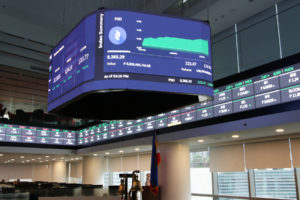Petron Corp. made an earnings turnaround last year, bouncing back with a P6.14-billion net income after hitting an P11.4-billion net loss in 2020 as overall demand improved from the easing of COVID-19 restrictions.
“To say that we’ve come a long way since the start of this pandemic would be an understatement. We have recovered significant volumes in key market segments, and more importantly, we have returned profitability to our business,” said Petron president and CEO Ramon Ang.
“This allowed us to follow through on our expansion programs, bring our products and services to more consumers, and contribute to our country’s progress. We hope to carry on with this momentum and thrive further in 2022,” he added.
Driven by the increase in international prices and higher local demand, Petron’s consolidated revenues during the period hit P438.06 billion from the 2020 record of P286 billion.
The Asian benchmark Dubai crude also averaged $70 per barrel last year, a 64-percent increase from the levels in 2020.
The recovery in demand allowed Petron to sell a total of 82.24 million barrels, up 5 percent from its record in 2021 as economic activities jump-started.
Across segments, retail volumes went up by 6.4 percent amid the implementation of granular lockdowns while industrial sales grew by 2 percent as more industries reopened and travel restrictions were relaxed.
Petron’s lubricant sales recorded the highest growth at 11 percent.
The company also continued to invest in refinery enhancements, the expansion of its service station and supply chain management.
Moreover, the construction of its 184-megawatt power plant at its refinery complex in Bataan is nearing completion. Once finished, this will eliminate the use of fuel oil at the refinery and allow the conversion of feedstock into more fuel for sale.
Petron is the largest oil refining and marketing company in the country, and is now a leading player in the Malaysian market. It has a combined capacity of 268,000 barrels-per-day and operates 40 terminals as well as 2,800 service stations in the region. INQ


